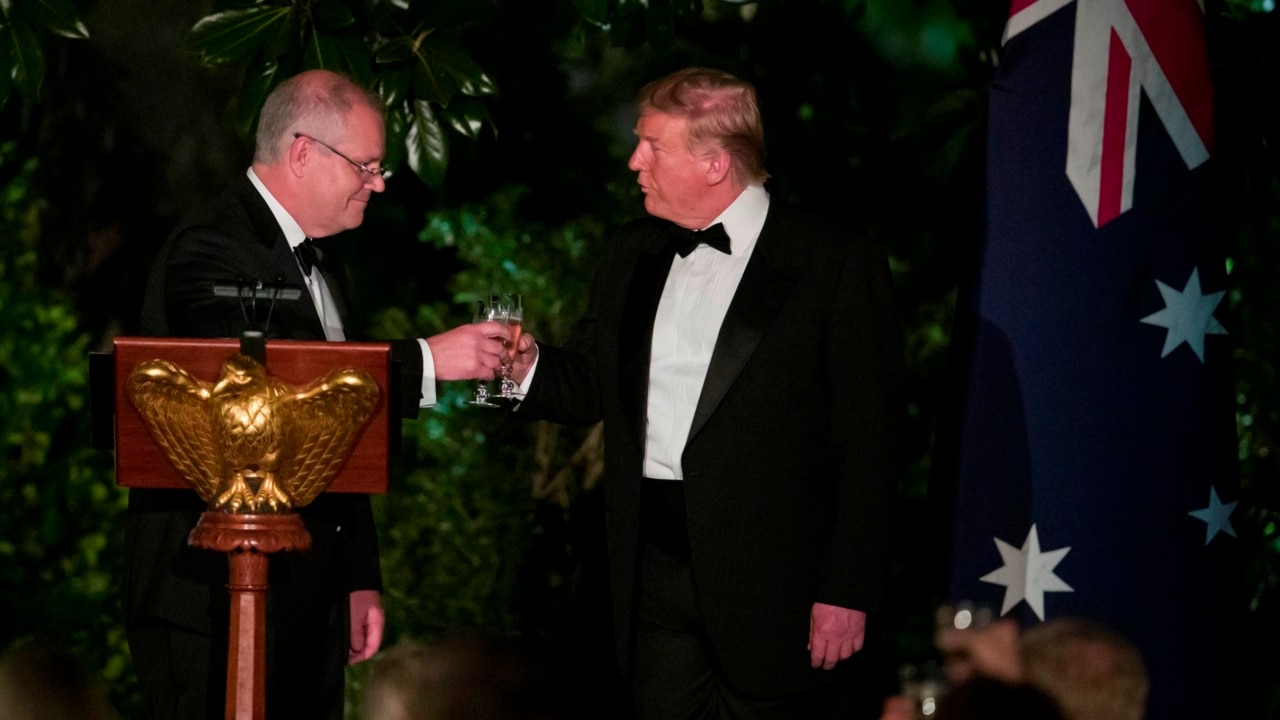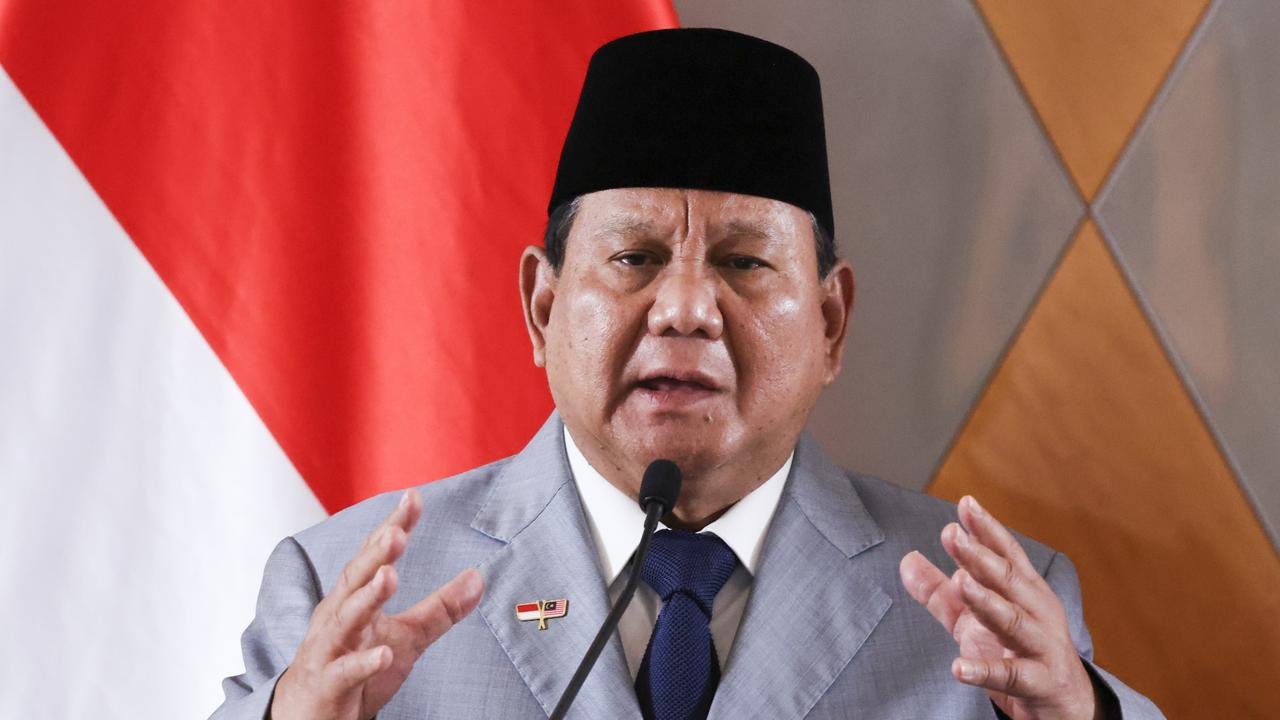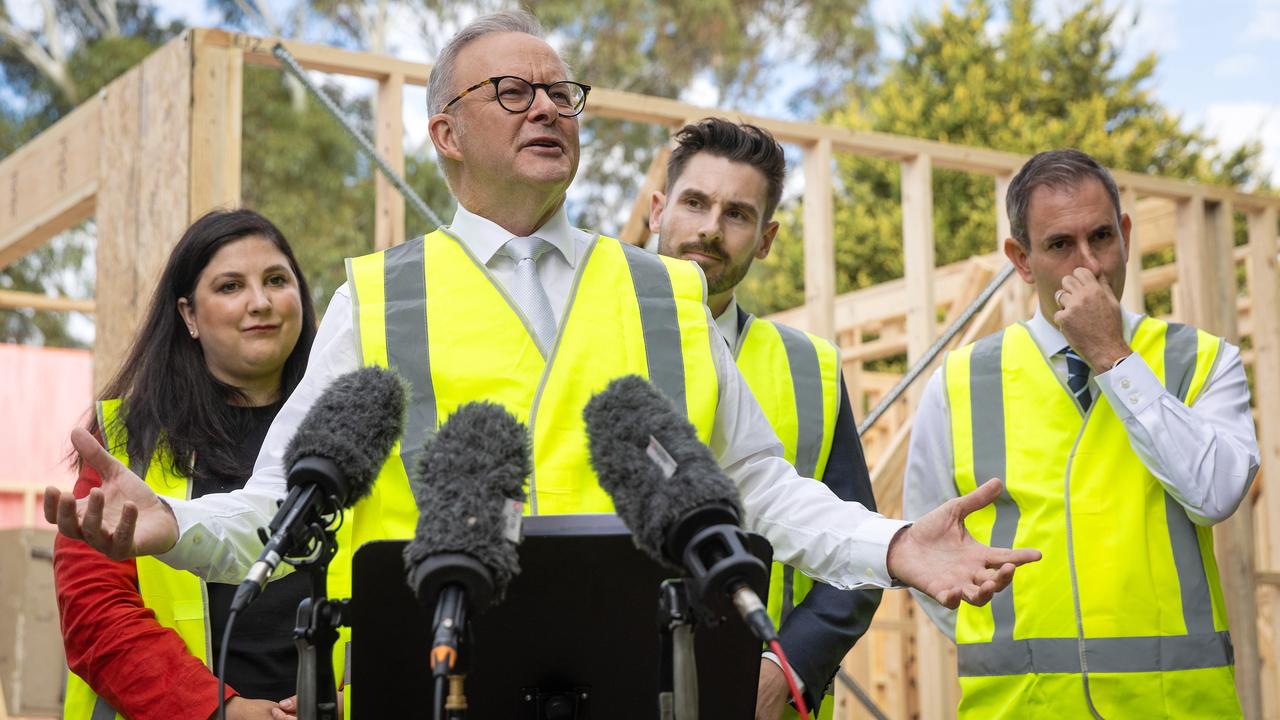PM pushes China to help end trade battle
After meeting with Donald Trump, Scott Morrison has publicly called on China to settle the trade war with the US.

Scott Morrison has publicly called on China to “take every opportunity” to settle the trade war with the US after directly urging Donald Trump to do the same to avoid economic damage to Australia and the region.
After meeting the US President in the White House, the Prime Minister said on Sunday he had a “clear sense” from Mr Trump that he wanted to pursue every opportunity to finalise a trade deal with China.
“I have been consistently advocating to both China and the United States, as have many others in our region, to come together and ensure they can resolve the issues they have before them,” Mr Morrison said. “I’ve urged that the sooner we can get to an outcome, the better.”
At a news conference with Mr Morrison at the White House on Friday, Mr Trump described China as a “threat to the world” and said a deal to settle the trade war could take until the US presidential elections in November next year.
In an interview with Sky News aired on Sunday night, he added that his tariff regime was having an impact on China’s economy. “They’ve had a very rough year, they’ve had a very, very bad year, worst in 57 years, and they’re losing a lot of jobs, their supply chain is breaking,’’ Mr Trump said.
“We’re getting tens of billions of dollars in tariffs and our economy is doing fantastically well, as is yours (Australia’s) by the way.”
But Mr Trump said he would “see if we can work something out” with China’s President, Xi Jinping.
“So we’ll just keep it going, we’ll see what happens but we’re charging China a lot of money now to do business with us.”
Mr Trump, who dubbed Mr Morrison a “man of titanium”, also said he intended to head to Australia “pretty soon”, hinting he could make an official visit as soon as December to coincide with the Presidents Cup golf tournament.
The tit-for-tat tariff war is slowing China’s economic growth and lowering demand for Australia’s mineral exports. Indo-Pacific members of the G20, including Australia, have asked Beijing and Washington to settle the dispute and avoid “collateral damage” to smaller economies.
Mr Morrison said any agreed deal needed to meet basic principles that ensured the deal was sustainable and made advances on breaches of intellectual property, forced technology transfer and trade rules. “It has to be done in a sustainable way, it has to be done in a way that genuinely deals with the issues before both countries,” the Prime Minister said.
Mr Morrison hinted that the Trump administration might extend its commitment to exempt Australia’s steel industry from increased tariffs. “We’re in good shape,’’ he said.
The head of the New York-based Asia Society, former prime minister Kevin Rudd, said in Beijing last week that the trade differences would have to be settled by the end of the year because neither China nor the US could afford to have it go on much longer. Mr Rudd described the G20 meeting in Chile in November as the “last-chance saloon” for settling the differences, which would damage the global economy if not settled.
Mr Morrison said he didn’t agree with Mr Rudd’s assessment of the importance of the G20 meeting in settling the trade war but wanted action taken as soon as possible.
“We would hope they would take every opportunity, whether it is at that meeting or any other meeting where they have the opportunity to come together,” Mr Morrison said.
“I got a clear sense from the President that that is something he wants to continue to pursue but you need both parties at the table to do that.
“It’s got to be a sustainable outcome, it’s got to be a durable outcome, it’s going to deal with the real issues that are there in their relationship. And I’m quite confident that’s what the President is seeking to achieve. So I don’t think there’s any delay there.”
When asked about the fact that he had still not visited China, more than a year after taking office, Mr Morrison said “of course” he would go to China if “there was an invitation”.
The fact there hadn’t been one was “not vexing us”.
On Sunday, Labor frontbencher Joel Fitzgibbon attacked the government for using the wrong language about China and said that the Coalition couldn’t accept an invitation.
Mr Morrison said Australia had a good relationship with both the US and China and had been consistent on trade as well as “transparent and clear”.
“What is important is what Australia’s view is and I set that out in the Oval Office yesterday … You need to understand Australia’s economic relationship with China is very different from the United States’ economic relationship with China,” he said.
“We have a surplus with China, they have a deficit, and they have a very different economic experience of their relationship.
“For Australia, China has been an important source of trade and economic growth … It has been an absolute boon for Australia and that is why I have always made it clear we have always welcomed China’s economic growth and will continue to and that’s why we have a comprehensive strategic partnership with them.
“At the same time, we have been very clear about a whole range of other issues such as intellectual property, forced transfer of technology or how foreign investment operates, and none of that is of any surprise.”
Mr Morrison said the Coalition was not expanding its commitment to help the US in the Middle East enforce sanctions on Iran, after Mr Trump said on Friday that the US nuclear arsenal was reinvigorated, in “tippy-top shape”, and it would be an easy option to order a military hit on Iran over the oil embargo.
Mr Morrison said Mr Trump had a “natural instinct of restraint on these matters and he said that I think fairly plainly yesterday in the Oval Office”.
After three days in Washington Mr Morrison flies to Ohio to be joined by Mr Trump at an Australian-owned factory and then on to Chicago for a day.
The following day Mr Morrison goes to New York for the UN General Assembly.





To join the conversation, please log in. Don't have an account? Register
Join the conversation, you are commenting as Logout